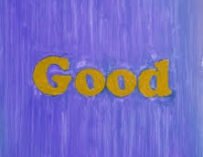
Her fourth album shows that Annie Clark has learnt to trust her instincts, with an exceptional palette of art-rock songs

Opener Rattlesnake is about a time that Clark ventured into the Texan desert, stripped naked, saw a rattlesnake and ran all the way back home. Literal meaning aside, the track oozes snappy guitar melodies, and anxious vocals. It ends with guitar slides that sound like they’re from a futuristic farmyard. It’s a good indication of the general feel to the album: obscure, futuristic and confident in itself.
After that literal story the following track, Birth In Reverse, is much more open to interpretation. “You could say that I’m sane, in phenomenal lies” will bring back the truthful, ‘dear diary’-type lyrics that seem to really bury themselves into a listener’s heart. It’s choppy, it’s manic, it’s desperate. Here Clark relishes in technical and distorted guitar, finishing on a dirty sounding guitar solo that is disappointingly cut short.
Huey Newton started out as a sleeping pill trip that Clark felt compelled to write about. It starts with slow and simple synths, without much of a build-up, before diving into the heaviest guitar breakdown ever featured in her music. It’s accompanied by choral synths and dynamic vocals. It’s a standout track, displaying her aggressive potential despite the demure associations with her music.
“Digital Witness is another standout”
Funky, horn-led piece Digital Witness is another standout. With a catchy chorus about a media-obsessed generation that documents absolutely everything, it encapsulates the issues within today’s society, but at the same time it’s something you can dance to.
There are glimmers of the past for fans of Clark’s earlier work, with Prince Johnny a slow and crooning number that seeks desperation and is packed with literary references similar to Surgeon from Strange Mercy. In contrast, Bring Me Your Loves starts out with a post-punk feel but eventually pans out with a wind-work section which will bring a sense of nostalgia to the early fans of St Vincent.
Generally speaking however, this album is much more electronically charged. Distinguishing what is guitar from what is synth was at times challenging on Clark’s last album; with St Vincent it’s even more so. There’s no denying it works and it is slowly becoming a trademark for Clark. It replaces the past idiosyncrasies of the wind-works and youthful vulnerability of her music to reveal a self-assured and strong musician.
With an ambitious statement such as someone believing that they finally sound like themselves, many expect a drastic and potentially unsuccessful change. Annie Clark, though, has succeeded. What we have now is the St Vincent that has been lurking in the shadows all along and clearly has many more fantastic, relevant and hard-hitting stories to tell in the future.
Verdict: A pleasurable piece of pure art-rock
![]()
![]()
![]()
![]()
![]()
Tilly Dowman




































Related Articles